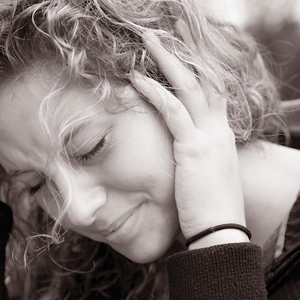Ringing, roaring, hissing, or chirping. Each person who has tinnitus may have his or her own special kind of sound, but all agree that the noises can be intrusive and disturbing.
People with tinnitus hear sounds that are not heard by others. Sometimes referred to as a ringing in the ears, the sounds can run the gamut from buzzing to clicking – and everything in between. From the level of a whisper to the intensity of a shriek, these sounds occur either intermittently or constantly, and can occur in one or both ears. Although it’s widely believed that tinnitus is much more prevalent in seniors, people of all ages – even the very young – experience it. That said, as the population ages and we all exist in louder and louder environments, many more of us will struggle with tinnitus.
The causes of tinnitus are varied and can include anything from a foreign Body in the ear canal to an ear infection. The most common culprit is damage to the cochlea, the part of the ear responsible for hearing. Tinnitus can also be caused by medications or neurological conditions such as multiple sclerosis. In a rare and unusual form of tinnitus, the sounds can actually be heard coming from the patient’s ears. Jaw clicks or Muscle spasms can cause sounds. A pulsing, whooshing sound similar to a heartbeat should trigger a consultation with an otolaryngologist.
More commonly, patients have sounds that cannot be detected by anyone else. Your otolaryngologist and his or her staff can test for the presence of tinnitus by using specialized equipment and techniques. These tests measure how the brain reacts to sets of sounds; other tests will also be done to determine if there are any growths near the auditory nerve, which transmits information from the ear to the brain. Associated hearing loss is common in patients with tinnitus.
Since the most common cause of tinnitus is damage from hearing loss, prevention is important. Men and women who work around heavy equipment are definitely at risk for tinnitus. Many musicians and Djs now wear special earplugs during performances to protect their ears. Some otolaryngologists recommend that earplugs be used in any loud environment, even while using a loud hairdryer, riding a motorcycle, or using a power lawn mower. Your otolaryngologist can customize the earplugs to fit your ear canal for maximum comfort and effectiveness.
How loud is too loud? There are individual differences between people, obviously, but it is generally felt that noise levels greater than 70 decibels may put you at risk for tinnitus. Sound levels below that – such as a vacuum cleaner or a dishwasher, should not be harmful. If you understand that an alarm clock rings at about 70 decibels, that’s a good measure.Muscle spasms can cause sounds. A pulsing, whooshing sound similar to a heartbeat should trigger a consultation with an otolaryngologist.
More commonly, patients have sounds that cannot be detected by anyone else. Your otolaryngologist and his or her staff can test for the presence of tinnitus by using specialized equipment and techniques. These tests measure how the brain reacts to sets of sounds; other tests will also be done to determine if there are any growths near the auditory nerve, which transmits information from the ear to the brain. Associated hearing loss is common in patients with tinnitus.
Since the most common cause of tinnitus is damage from hearing loss, prevention is important. Men and women who work around heavy equipment are definitely at risk for tinnitus. Many musicians and Djs now wear special earplugs during performances to protect their ears. Some otolaryngologists recommend that earplugs be used in any loud environment, even while using a loud hairdryer, riding a motorcycle, or using a power lawn mower. Your otolaryngologist can customize the earplugs to fit your ear canal for maximum comfort and effectiveness.
How loud is too loud? There are individual differences between people, obviously, but it is generally felt that noise levels greater than 70 decibels may put you at risk for tinnitus. Sound levels below that – such as a vacuum cleaner or a dishwasher, should not be harmful. If you understand that an alarm clock rings at about 70 decibels, that’s a good measure.
Certain medications can cause tinnitus as well. Known as ototoxic drugs (literally “poisoning the ear”) these drugs may be cumulative. It’s a good idea to discuss all of your medications every time your physician wants to prescribe a new drug, evaluating any possible ototoxic potential. If there is no choice, modifying the strength and duration of the medication may help prevent significant problems.
There is no single cure for tinnitus. In the rare event of objective tinnitus (that’s tinnitus heard by the clinician), treatment can target the clear cause of the problem. In the far more common subjective cases, however, there are a number of potentially helpful treatments, ranging from medications, nutritional supplements, electrical stimulation or, rarely, surgery. Your doctor will discuss your individual condition and work with you to come up with the most effective treatment plan possible.
For some patients, tinnitus may be a lifelong problem that never resolves. These patients may need to undergo lifestyle changes if the tinnitus is seriously affecting their daily activities. Remember, medical professionals can help design a strategy for managing this difficult problem for most patients, and help ease the burden of tinnitus.




